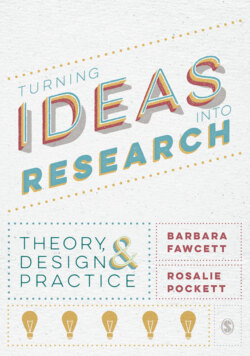Читать книгу Turning Ideas into Research - Barbara Fawcett - Страница 13
На сайте Литреса книга снята с продажи.
Rigour and trustworthiness
ОглавлениеMany new researchers want to carry out research into an area that they know something about or have a passion for. However, issues of bias and objectivity have tended to cause confusion for many, and in some cases have deterred practitioner researchers in particular from carrying out research projects. This confusion arises from the different ways in which qualitative and quantitative research projects are both conducted and evaluated. We discuss this further in Chapters 5, 6 and 8. However, debates about bias and objectivity have tended to come about as a result of the application of scientifically orientated positivist concepts to the social arena. This emanated from the belief that principles drawn from the natural sciences could be applied to the social world in order to uncover fundamental and enduring patterns and connections. Efforts to give social science the status of natural science initially forged this connection. This was underpinned by an emphasis on detachment, logic and the scientific formulation and testing of hypotheses. However, the view that there is an essential reality out there that can be uncovered by means of reliable and valid research methods that are applied objectively with mathematical and statistical precision has waned, and the influence of ontological and epistemological perspectives in quantitative as well as in qualitative forms of researching is generally recognized. Clearly, there are parameters to measure and assess the reliability, validity and generalizability of quantitative research and the trustworthiness and rigour of qualitative research. ‘Scientific’ notions of bias and objectivity associated with the more traditionally orientated positivistic traditions can be seen to have a number of limitations which have led to the association between quantitative orientations and positivism becoming much more flexible. This has opened the door to a greater number of research opportunities in relation to the generation of ideas and the formulation of viable research projects. This is an area we refer to throughout the book.
